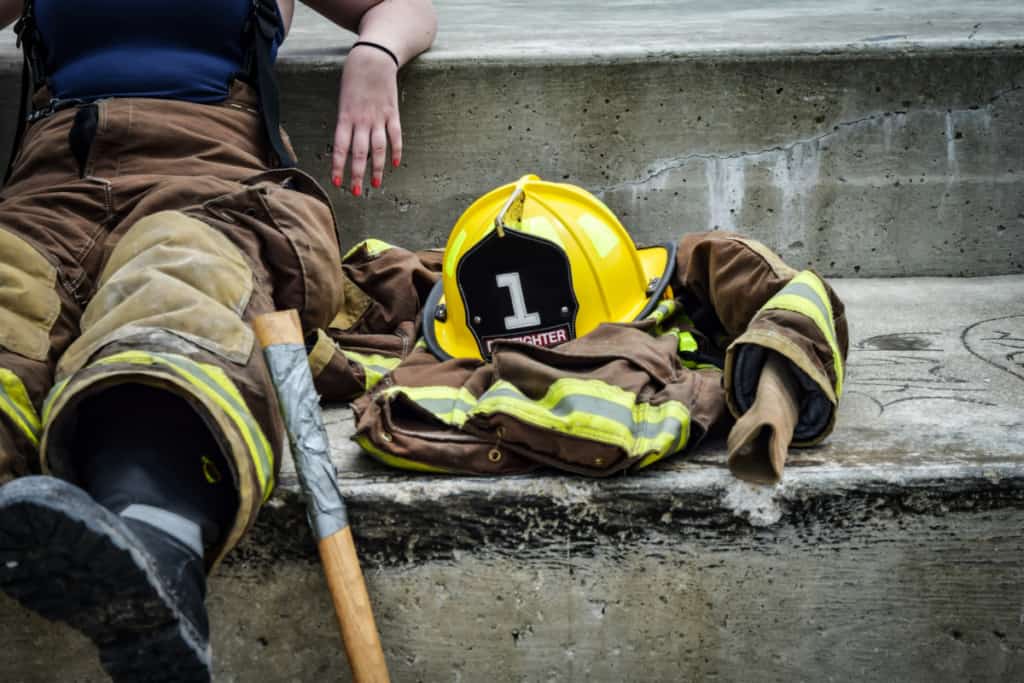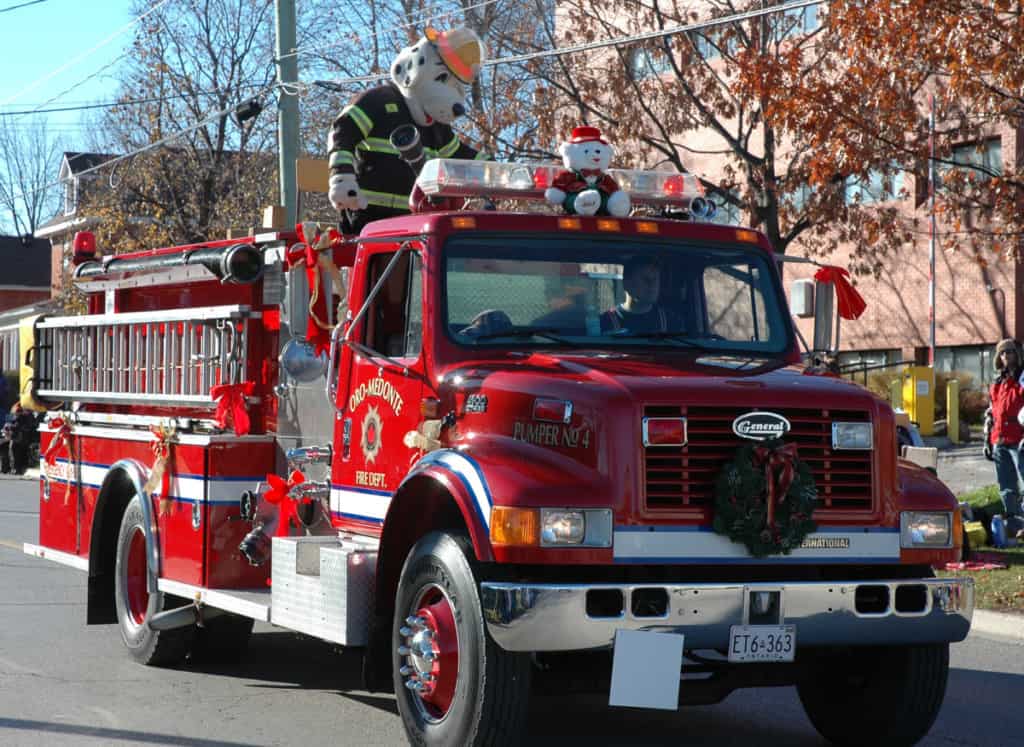Many of those interested in getting hired as a firefighter wonder how hard it is. They are curious to learn how difficult it is to get hired and go through all the training required. They wonder how much competition there is as a prospective firefighter.
It is usually very difficult to become a firefighter. There is usually a lot of competition for each vacant position. Although there are usually only a few basic requirements to apply for a firefighter job, those that are hired frequently have a lot more training, education, and experience than required.
So, you may need more training and experience than the basics in order to become a firefighter. Add all of this to the ever-growing number of applicants and the scarcity of positions in most fire departments, and it’s easy to see why becoming a firefighter is considered a difficult task.
But don’t let all this discourage you. If you really want to get hired as a firefighter, you should put your all into obtaining your dream job. It is an amazing career that I wouldn’t trade for any other and it is well worth all the work to get hired. Let’s go a bit further in-depth into why it’s so hard to become a firefighter.
Your # 1 priority is keeping your family safe. As a firefighter, I recommend everyone has updated smoke detectors that don’t require battery changes, like these ones from Kidde, a fire extinguisher, like this one from Amerex, and a fire escape ladder if you have bedrooms above the first floor, I recommend this one from Hausse.
Why It’s Hard to Become a Firefighter – Competition
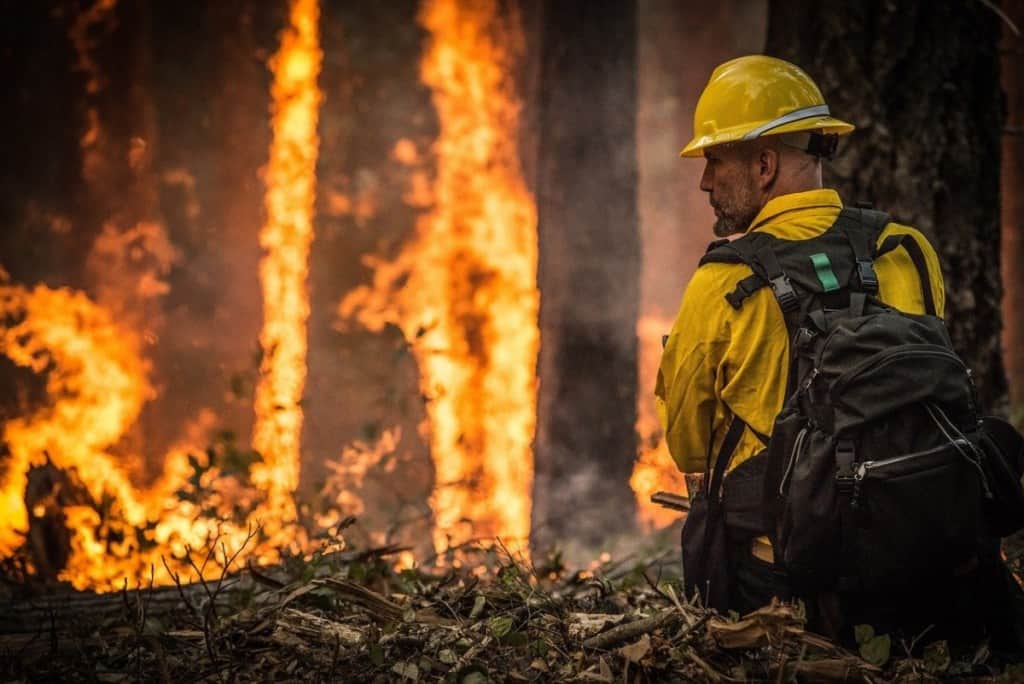
The Bureau of Labor Statistics says there are 332,400 firefighting positions in the United States, as of 2018, and there is a 5% expected increase in the number of jobs over the next 10 years.
The biggest reason why it’s hard to become a firefighter is due to the sheer number of applicants for each of those positions.
The role of firefighters is not much like what you see on TV. Most of the time, it involves a lot of non-glamorous, behind-the-scenes work that’s needed to keep the community safe. It’ll be a challenging career if you pursue it without believing in what you’re doing.
For starters, you’ll endure long hours of rigorous training that will test your limits. This continues even after you are hired as a probationary firefighter; training and learning are a huge part of being a firefighter.
If you want to persevere and obtain a coveted firefighting career, you need to be committed to lifelong service and have a profound sense of dedication to protecting everyone’s interests and welfare.
Also read: Is Firefighting a Good Job? Firefighter Career Advantages
What are the Odds of Getting Hired?
Being a firefighter is an amazing, but challenging career choice. For those who are well suited to it, there is nothing else like it.
And that is why it is so hard to get a job as a firefighter… because so many people want it.
Now, many of those people see what a firefighter does on some TV show or thinks it will make them more desirable to the opposite sex. These people won’t make it far in the process and you really don’t need to worry about them in terms of competition.
However, there are still thousands of qualified applicants that are working hard to get their dream job riding on the fire engine.
The odds that any one person will get hired are pretty low. While it can vary a lot based on the area, size of the department, work schedule, salary, call volume, etc., it is usually quite competitive.
As an example, when I got hired in 2012, I applied along with 4500 other candidates.
I remember showing to take the written exam in a high school gym that was filled with desks. There were only 500 people taking the test at a time, but seeing that many people going after the same job that I wanted was very overwhelming!
How would I stand out from all these other people, some which had way more education, expereience, and qualifications than me?
This is a common fear. But I just put my head down, did the best I could in the process, and let things fall where they may.
I figured, if some of the candidates had more experience than me, that I had to study and work harder to excel at the testing process itself, in order to get a job offer.
And that is what happened. I got my dream job offer, along with 14 other new firefighters (2 of whom later failed out of the fire academy).
Think about that. 4500 people going for 15 spots.
That is 1-in-300 odds of getting the job. Or a 0.3% chance.

Those are overwhelming odds!
Now, some fire departments may only have 500 applicants for 30 open positions.
That is 1-in-16 odds or 6% chance. Not so bad.
I’d say the average is somewhere in between. I use to hear that in order to get the job, you had to be in the top 1 to 2% of applicants. This sounds about right.
The average odds of getting hired as a firefighter on any one test are about 1-in-100 or 1% chance.
Even though those are still some tough odds, it is very doable. Those are the odds for one test, but most people apply quite a few times before they get hired.
For more information on how long this process can take, read: How Long Does it Take to Become a Firefighter?
Also remember that those are just numbers. Some people aren’t willing to work hard enough to get the job and don’t really add any competition for you. Also, as you get more experienced and better at the testing process, you will score higher and have a better shot at the job than what the numbers might say.
If I can get hired out of thousands of other aspiring firefighters, anyone can. You just have to work harder, want it more and, most importantly, be persistent and driven (don’t give up).
The trick is to excel at the hiring process, especially the interviews (also called oral boards) to get hired fast. To learn all the unspoken rules and master the testing and interview process, I recommend TopScore Firefighter Coaching. There is really nothing else that compares.
Now let’s take a look at some of the requirements that make becoming a firefighter challenging and what you can do to set yourself apart from all the others.
Minimum Requirements
1. High School Diploma/GED and a Driver’s License
A high school diploma or GED and a valid driver’s license is the first requirement in becoming a firefighter. You don’t need a degree to get a position in the firehouse, which means getting the job requires less time investment than many other fields, however, many departments these days are giving preference to candidates with higher-level education.
This base level of education is necessary to pass the written examination.
You also need to be 18 years old and some departments won’t hire candidates over a certain age, such as 35 years old.
Note: The age limits can vary, many departments have no upper age limit. For more information, read: Can I Become A Firefighter At 30/40/50? Am I Too Old?
If you want to get a headstart in firefighting, you can start looking for departments that offer limited involvement and participate as a junior firefighter. The earlier you start your service, the better your foundation will be, and the easier it will be for you to become a career firefighter.
Real-life and hands-on experience will give you valuable insights when it comes to the work ethic and discipline that the community expects from firefighters.
2. EMT License

Believe it or not, most of the emergencies that firefighters respond to are medical emergencies. That’s why most departments require an EMT license, while other larger departments require an EMT-Paramedic license. (EMT stands for Emergency Medical Technician.)
An EMT certification allows firefighters to be prepared as first responders. Since over 60% (or more depending on the area) of the calls firefighters respond to are emergency medical calls; firefighters need to know how to assess and treat, sick and injured people.
To learn more, read: Why Do Firefighters Go to Medical Calls?
Even if the local department doesn’t require an EMT license (though they almost all do), having one will make you a vital part of the department. Paramedic school can also make you much more competitive.
Those who are serious about pursuing careers as firefighters even take specialized courses in fire technology. Earning more course certifications in the field of firefighting and emergency services will provide a bigger room for career advancement in the future.
Also read: Do Firefighters Have to Be Paramedics or EMTs?
3. Good Physical and Mental Health
When responding to emergencies, you should be in tip-top shape, both physically and mentally. Firefighting can be a very physically and emotionally draining profession, and being fit will make you an integral part of your department.
As a firefighter applicant, you need to pass the CPAT (Candidate Physical Ability Test). This test will push you to your limits and see whether you’re fit to serve the community or not. The activities include:
- Climbing flights of stairs with added weight in a given time frame.
- Deploying and dragging fire hoses to specified locations.
- Planning and carrying full-sized equipment for search and rescue.
- Raising and extending the ladder for forcible entry or ceiling breach during an emergency.
These physical activities may seem overwhelming, but it’s what firefighters need to be ready to do every time they respond to emergencies. Passing the CPAT demonstrates your capacity to carry out these tasks and your effectiveness once you become a firefighter.
To learn more about the fitness requirements for firefighters, read: The Fitness Requirements for a Firefighter: Explained
To learn more the CPAT, read: 8 Tips for the Firefighter Physical Test: Passing the CPAT
After your CPAT, the next thing that you need to do is to pass a written exam that will test your knowledge in firefighting science and your overall mental health.
This test will include an assessment of your logic, critical thinking, math, reading, spatial awareness, mechanical aptitude, and memory. It usually comes in multiple choices and is divided into different categories. Look at the FCTC website for more information.
Here is my favorite book to help prepare for the firefighter written test: Norman Hall’s Firefighter Exam Preparation Book (2nd Edition)
For more resources to help you pass the written exam, read: Firefighter Written Test: What to Expect and How to Prepare and The 14 Best Firefighter Exam Prep Books and Tools
Putting in the time to study and prepare for these tests is necessary to getting through the difficult hiring process to become a firefighter.
Your physical and mental evaluation doesn’t end there, though. Firefighters go through routine checks to ensure that they are fit for duty. So even if you passed these exams initially, you still need to stay in shape, or your service as a firefighter will be short-lived.
You will also be required to undergo a thorough medical exam later in the process.
4. Pass the Interview
The interview is where a lot of applicants fail. Simple questions like, “why do you want to be a firefighter?” are enough to make or break your pursuit of this career. Your qualifications and exams won’t make you stand out from the rest of the applicants, but this one will!
It’s the ultimate test to become a firefighter, and you have to demonstrate your passion for serving other people in an interview environment. It’s a balance between being humble and selling yourself as a firefighter candidate.
Make an impression that lasts and be confident with your answers! You need to find ways to stand out from the thousands of other applicants.
This really is the hardest part to getting the fire job you want, so prepare accordingly.
Here are some inside tips for crushing your interviews: 15 Tips for Firefighter Interviews
Prospective firefighters have years to prepare for this moment. Some of them, however, see their bid go down the drain by being unsure of their answers or being too cocky when addressing the panel.
You can pass the physical and written exams with flying colors. But the firefighter interviews are where you actually earn your chance at the job.
Many of the questions during an interview may seem rhetorical or too easy, but the truth is that the exact wording of your answers isn’t the only thing that matters: how you answer, how composed you are, and how excellent your communication skills are also crucial elements.
Again, TopScore will prepare you to ace your interview and get hired quickly, if you put in the work.
This may also include interviews with a battalion chief or even the fire chief.
Also read: Most Common Firefighter Interview Questions: Insider Info
5. Intensive Background Investigation
One of the later, but still crucial parts of becoming a firefighter is the background investigation. You can pass everything with flying colors, but if there are discrepancies with the information you provide regarding your background, the department will disqualify you for the position.
A background investigation packet is at least 25 pages long, and it will require you to include everything about yourself.
From specific details regarding your previous work history to the most private information about you as a person. In most cases, the packet will ask you about the following:
- All former employers, including the date of service, job description, title or position, name of supervisor, and your salary.
- All the schools you attended, including your degree, if applicable, date of attendance, and your GPA.
- All certifications, licenses, and other documents that are relevant to becoming a firefighter, so the department can assess all the work that you’ve done to prepare yourself.
- All family members and friends, together with their contact information, so the background investigator can meet them personally to ask about you and your character.
- All financial information, including bank accounts, assets, liabilities, and outstanding debt to help the investigator determine your social status.
- All driving records, including the date of the accident, causes, outcomes, and tickets, so the department can predict your future behavior as a driver.
- Information about any criminal background
- Information about prior drug use
They will use the information that you provide to follow up and obtain as much info about you as possible. They may call or visit family, co-workers, past romantic partners to try to uncover the truth of you and your past.
Background investigation is a more in-depth assessment of who you are as a person and as a part of your community. You can’t BS or exaggerate your way through it. Even the slightest discrepancy in the information that you provide can and will be used as grounds to red flag your application.
6. Graduate from the Fire Academy
Once you are offered a job, you still have to spend a long time proving that you belong and have what it takes to be a firefighter. Most departments will first put you through a fire academy.
The fire academy contains all the basic education and training needed to be a firefighter.
Even if you have previous experience or have completed a college Firefighter 1 academy, you will be required to go through the department-specific training.
The academy is usually between 10 and 18 weeks long and can be very challenging. You will have long days of lectures and strenuous firefighting drills, in addition to daily physical fitness training (PT).
You should go into the academy ready to work very hard. You will be tested on all topics on a regular basis and failing a test could mean losing the job you worked so hard for.
To get a better idea of what the fire academy is like, here is a video of week 4 of a 16-week fire academy at South Metro Fire Rescue in Colorado:
To learn more about the fire academy, read:
- Fire Academy 101: What to Expect and How to Prepare
- How Hard and How Long is the Fire Academy? Are You Ready?
- Can You Fail the Fire Academy? Yes, Here’s How
- How To Prepare For The Fire Academy: 14 Insider Tips
7. Complete Probation Period
After you successfully complete the fire academy, you will be sworn in as a firefighter. At this point, your probation period begins.
Probation is a further evaluation period. It will last between 1 – 2 years and you will be learning and tested on-the-job. You will work as a firefighter, with your assigned crew, but you are still being trained and evaluated in your ability to apply what you learned in the academy.
This period can also be quite challenging.
In addition to passing all the tests they throw at you, you are expected to earn your place in the firehouse. What this means can vary from one place to the next, but expect to be the hardest-working member of the crew.
Expect to be the first up in the morning, last to bed, doing the dishes, cleaning the station, making coffee, and getting the newspaper. You should be studying at any time you aren’t busy with something else. Be the first to volunteer for any task. Show that you want to be there.
Also read: How Long is a Firefighter Probationary Period?
How to Get Hired Faster and Easier
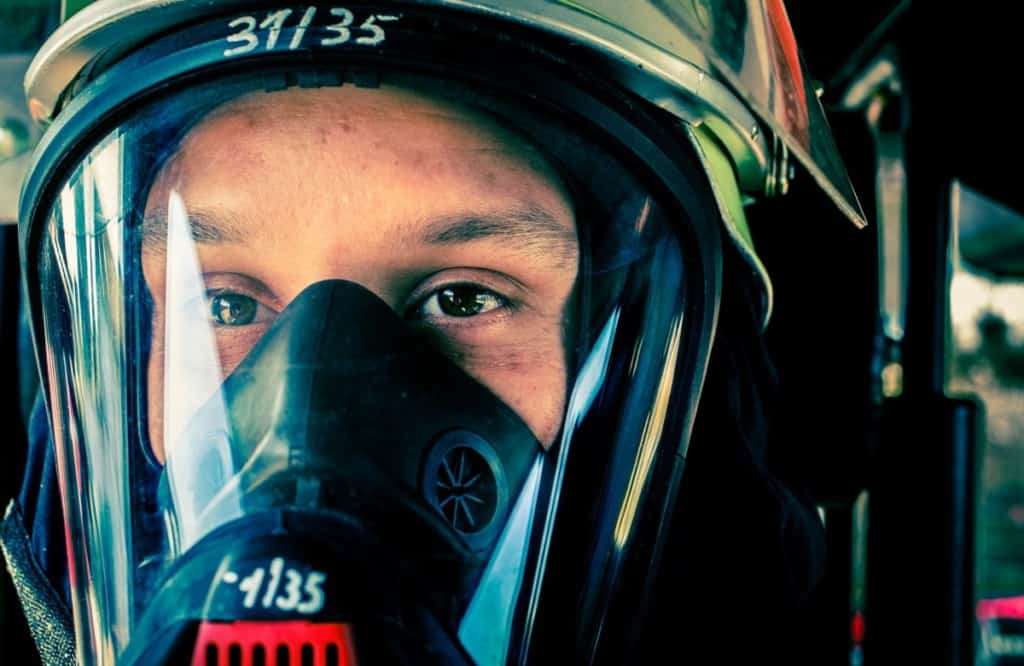
Even if you manage to pass all of those tests, a career in the fire service is still not guaranteed. Departments only want the cream of the crop to join their ranks, and you still have to compete with other applicants who passed the same tests.
Remember, there can be thousands of applicants for 10 or less open positions.
Becoming a firefighter may not be easy, but there are things that you can do to ease up the process. It’ll take years of preparation, so use this prep time to ensure you acquire the right skill set and improve your background. It’ll give you a massive edge and increase your odds of becoming a career firefighter.
Also read: Career Change to Firefighter: What You Need to Know
1. Stay Out of Trouble
During your background check, the department will ask you about your record. You mustn’t lie, but make it a point to enumerate the things that you’ve done to rectify it. That’s ok! Everyone has done stuff they aren’t proud of. What matters for a firefighter is honesty, learning from it and staying out of future trouble.
Take responsibility for your mistakes. Assure the panel that you’ve done everything that you can to change. It’s an integral part of assessing your behavior as a future fire fighter, and an unmistakable pattern of negative behavior will immediately void all the preparations that you’ve made.
Remember, the cleaner your record is, the easier it will be for you to become a firefighter.
2. Keep Your Social Media Profiles Clean

Believe it or not, departments reject a big chunk of all applications because of social media. If you’re planning on becoming a firefighter, be mindful of everything that you do online. Nowadays, your social media profile is one of the best ways to assess your behavior and personality.
A good rule of thumb when using social media is; never to post anything that you wouldn’t broadcast, say, or do in real life. If it’ll embarrass you, harass another person, display immaturity, or risqué, it’s better to keep it to yourself. Prove you are someone that can be trusted around the fire station.
Before you start applying to become a firefighter, remove all unnecessary posts that emit negativity and display immaturity. When push comes to shove, delete all of your social media accounts. Sometimes, that’s what it’ll take to become a firefighter, and if this career is what you’ve always wanted, it is more than worth it.
3. Get Involved in Your Community
Firefighting is all about serving the community. It’ll be a lifelong journey that always puts public safety above anything else. Being involved in community projects and volunteering your time to a good cause is a huge indicator that you’re ready to serve other people.
It doesn’t matter if it’s fire-related or not. What matters is that you’re actively participating in activities where you can make a difference.
Departments will always look for applicants who have a proven record of desire and capacity to help people. Everyone says this in their interview, but you need to prove it! Aside from helping you make your resume stand out, it’s also one of the best ways to gain excellent background references from other people.
This site can help you find opportunities to volunteer in your area.
4. Take Specialized Classes
Departments usually don’t require specialized classes like fire technology degrees, rescue classes, how to fight wildland fire, HazMat (Hazardous Materials) classes, etc.
However, it can set you apart from other candidates and make you more prepared. It will also come in handy when you start pursuing career advancement. These specialized classes sure look good on your resume, and having more in-depth knowledge of firefighting will make you an indispensable member of your department.
Invest in your future before you even get the job. It will show your dedication and passion for becoming a firefighter. Take a semester-long class at your local community college to gain a deeper foundation in firefighting.
Here is a link to information from FEMA on specialized classes from the National Fire Academy.
There is sometimes preference for candidates that have an Associate’s or Bachelor’s degree in something like fire science, fire prevention, or fire protection technology.
5. Earn Your EMT License
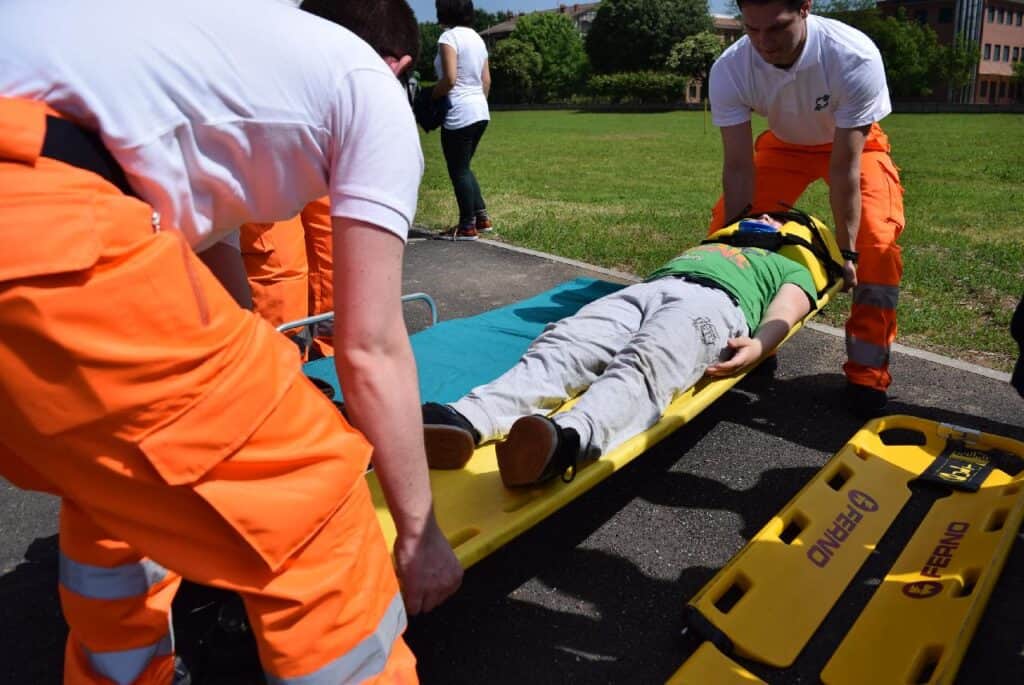
Like we discussed above, being an EMT is one of the basic requirements for firefighters today. So you need to earn your EMT license if you want to even apply for a firefighter position.
You can even make yourself more viable for more positions by completing a paramedic certification and earn your EMT-P license.
Being a paramedic can really set you apart from other candidates as not everyone will have this license. This allows you to have more training and skills on medical calls and can provide better care to the department’s citizens.
For information on becoming an EMT, Click here.
6. Become a Volunteer Firefighter
Volunteer firefighters can perform much of the same skills and work as paid firefighters. No amount of training or class can match the knowledge that you’ll gain from a real fire-ground operation.
Gaining valuable insights into the life of firefighters will also make it easier for you to pass the hiring process steps. The question “what are the three biggest challenges in fire service today?” will be brutal if you don’t have hands-on experience and haven’t seen firefighting first-hand.
You can also get experience as a seasonal or wildland firefighter. This can show that you can handle yourself in an emergency situation.
Also read: How To Become A Volunteer Firefighter: A Guide
Conclusion
Becoming a firefighter is not a career that you can rush or force yourself into. It’ll require years of preparation, patience, hard work, dedication, and a deep passion for serving other people.
This competitive field can require years of training, education, and work to get into. It is highly competitive and you need to find ways to stand out from all the other candidates.
It’s not easy to become a firefighter, so you have to make the necessary preparations, and be a role model of your community. That’s the best thing that you can do to be successful when applying for a position as a career firefighter.
For more detailed information on becoming a firefighter, read: How to Become a Firefighter: The Complete Guide
Related Articles
What Schedule Do Firefighters Work? Shift Schedules Examined
What to Wear to a Firefighter Interview: Attire for Getting Hired
